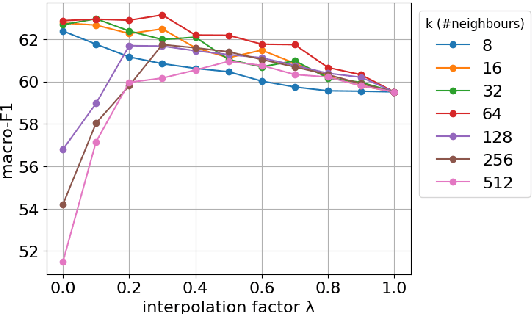Mind Your Neighbours: Leveraging Analogous Instances for Rhetorical Role Labeling for Legal Documents
Paper and Code
Mar 31, 2024



Rhetorical Role Labeling (RRL) of legal judgments is essential for various tasks, such as case summarization, semantic search and argument mining. However, it presents challenges such as inferring sentence roles from context, interrelated roles, limited annotated data, and label imbalance. This study introduces novel techniques to enhance RRL performance by leveraging knowledge from semantically similar instances (neighbours). We explore inference-based and training-based approaches, achieving remarkable improvements in challenging macro-F1 scores. For inference-based methods, we explore interpolation techniques that bolster label predictions without re-training. While in training-based methods, we integrate prototypical learning with our novel discourse-aware contrastive method that work directly on embedding spaces. Additionally, we assess the cross-domain applicability of our methods, demonstrating their effectiveness in transferring knowledge across diverse legal domains.
 Add to Chrome
Add to Chrome Add to Firefox
Add to Firefox Add to Edge
Add to Edge